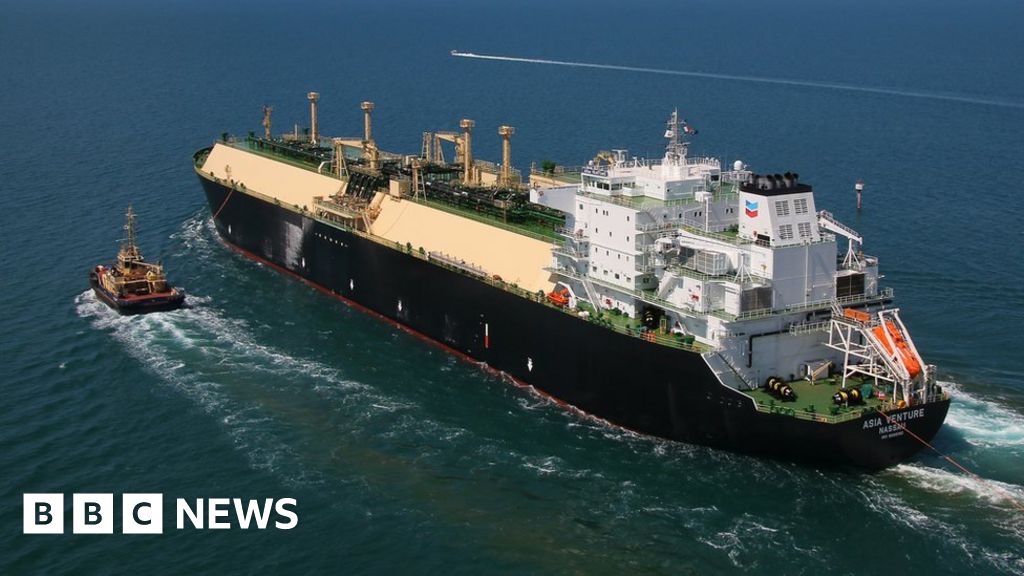Unions representing workers at Chevron's LNG production facilities in Australia are planning daily work stoppages of up to 10 hours, which could disrupt operations and potentially impact global LNG markets.
Workers at Chevron's liquefied natural gas facilities in Australia are planning to strike, which could result in a loss of around 7% of global supply and potential price increases.
Strikes at Australian natural gas facilities could lead to a global shortage of gas supply and higher European gas prices, as the market is currently very tight with little flexibility, according to energy analysts. The strikes are scheduled to begin on Thursday unless an agreement is reached between Chevron and the unions representing workers at the Gorgon and Wheatstone projects. However, analysts believe that prices are unlikely to reach the record peaks seen in September 2021. The gas market also remains sensitive to other factors, such as disruptions caused by winter storms or a cut in Russian gas supply. There is also uncertainty surrounding the future of gas transit through Ukraine, which could further impact European gas prices.
Workers at Chevron's liquefied natural gas (LNG) facilities in Australia are holding talks with the company to avoid planned industrial action over pay and conditions, which could potentially impact global energy markets.
Workers at Chevron's liquefied natural gas facilities in Australia have agreed to delay strike action for one day, easing concerns in the gas market.
Workers at Chevron's Gorgon and Wheatstone LNG projects postpone their strike to Friday, signaling positive ongoing discussions and causing European gas benchmarks to decrease and EU gas storage to exceed 93%.
Hundreds of workers at Chevron's liquefied natural gas plants in Western Australia have halted work in an industrial action over pay and working conditions, potentially impacting global gas prices.
Workers at Chevron's liquified natural gas facilities in Australia have gone on strike, putting as much as 7% of global supplies at risk and potentially increasing pressure on energy prices.
Approximately 146,000 U.S. auto workers are poised to go on strike if General Motors, Ford, and Stellantis fail to meet their demands for substantial pay raises and restored benefits, potentially causing significant disruptions in auto production and impacting the U.S. economy.
Chevron Australia will pursue a legal strategy to stop strikes at its Gorgon and Wheatstone liquefied natural gas facilities in Australia, after failing to reach a deal with unions, potentially risking billions of dollars in export revenue.
The United Auto Workers union is ready to go on strike at American automakers if a tentative deal is not reached by Thursday night, with the union demanding significant wage increases and the return of traditional pension plans and retiree healthcare for all members.
The local auto workers' union at Ford's Sharonville transmission plant is preparing for a potential strike as the contract between the United Auto Workers union and the Big Three automakers expires, with picketing instructions issued and workers standing strong behind negotiators.
The United Auto Workers union plans to implement targeted strikes at certain plants if tentative contracts are not reached with General Motors, Ford Motor, and Stellantis, potentially affecting local contract issues and involving work stoppages only at specific plants.
The United Auto Workers (UAW) will go on strike at select plants across Detroit's major car manufacturers if a contract deal is not reached by Thursday night, according to UAW President Shawn Fain, who stated that the union will strike in a way that the companies have never seen before.
Australia's Offshore Alliance union has initiated a second 24-hour strike at Chevron's LNG plants in Western Australia, with workers enacting rolling stoppages, as part of an ongoing pay and condition dispute.
Chevron has resumed full production at its Wheatstone liquefied natural gas (LNG) facility in Western Australia after a fault last week caused a 20% production cut, but the fault and ongoing strikes have not affected scheduled LNG deliveries.
An Australian union alliance has ended strikes at Chevron's two major LNG projects after accepting proposals on pay and conditions, resolving a dispute that had threatened 7% of global LNG supplies and raised prices by as much as 35%.
